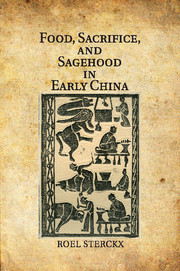Concluding Remarks
Published online by Cambridge University Press: 03 May 2011
Summary
By multiplying colors, patterns are formed. By combining flavors, delicacies are created. It is through such methods that the sages distinguish between the worthy and the foolish, and show up the noble and the base.
In a recent book, Cambridge archaeologist Martin Jones offers a fascinating account of the history of bread. He shows how bread, much as it was a source of nutrition in the ancient Mediterranean world and Christian Europe, should also be thought of as a cultural object. The “artistry of the loaf” – its color, shape, and ingredients – turns bread into an intriguing semiotic tool for the archaeologist through which to interpret the cultures that consumed it: “Just as different clays mixed with different tempering agents produce different kinds of ceramic, so different flours, combined with different ingredients, create different kinds and shapes of loaf.” In many ways, scholars seeking to unravel the semantics of food in ancient societies are like the cooks, bakers, and diners they write about. They decide on a set of sources, temper these with questions inspired by their discipline, and cook up an analytical narrative that connects with the investigative taste of their readership. The story of food in China is one that has attracted the attention of China scholars very early on. It does not end here. Food culture will continue to offer a fruitful window through which to examine Chinese thought and society, in past and present.
- Type
- Chapter
- Information
- Food, Sacrifice, and Sagehood in Early China , pp. 203 - 206Publisher: Cambridge University PressPrint publication year: 2011
- 1
- Cited by



